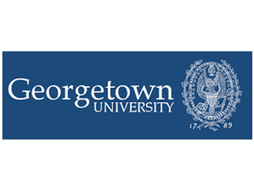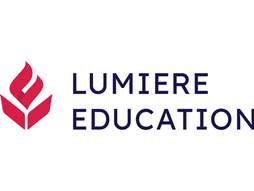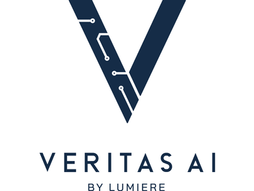The Paradigm Challenge: 7 Tips For Winners
Innovation cannot be learned, but the inspiration for innovation comes from experience. Innovation challenges do just that - help students utilize their pre-existing creativity and out-of-the-box thought process, streamlining it and producing something impactful.
Competitions like the Paradigm Challenge build on this advantage by providing students with the means and motivation to channel their energy into solving critical problems. If you are looking to solve a real-world challenge while honing your ability to innovate and critically develop ideas, the Paradigm Challenge presents an excellent opportunity and a sizable reward.
What is the Paradigm Challenge?
The Paradigm Challenge is an international competition that invites students aged 4 to 18 around the world to use “kindness, creativity, and collaboration” to help solve real-life problems. The challenge is organized by Project Paradigm, a private foundation whose mission is to inspire youth to effect positive change in the world. Each year, the Project has had its participants focus on attempting to solve significant global challenges. For the previous year for example, participants are asked to ideate on solving home fires, waste reduction, personal health, food security, and preserving biodiversity. The Paradigm Challenge has successfully completed four years, providing students with a platform to develop their innovation skills in a way that benefits the world. Project Paradigm also provides winners with the resources, beyond the prize money, to help bring their ideas to life.

Is the Paradigm Challenge prestigious?
The challenge is prestigious due to its global reach, its focus on real-world problems, and the significant prizes it offers. It has even been recognized by the White House for its commitment to early STEM learning and young makers. The previous year’s challenge had over 50,000 participants across the world.
Eligibility and Cost of Entry
The Paradigm Challenge is open to students aged 4 to 18 from around the world.
There are no registration fees.
There are no restrictions on team sizes, and students can even be members of more than one team. Each team is allowed to submit more than one entry.
Teams will be classed into one of three divisions based on the age of the eldest member at the time of entry - Division 1 for ages 4-8, Division for ages 9-13, and Division 3 for ages 14-18.
Timeline and Structure of the Competition
The competition runs annually, with the topic for the next Challenge Project announced after the current Challenge deadline. Entries can be submitted in the form of inventions, community events, mobile apps, videos, and more. The submission and feedback process itself is continuous and iterative, with Challenge mentors providing advice to submitted ideas on the student dashboard and allowing them to refine their submissions further up till the competition deadline.
From the submitted entries, one month later the Top 100 are selected as Paradigm Challenge Finalists based on the efficacy, feasibility, originality, and presentation of their ideas as well as the collaboration achieved in the submission. The top teams from each division are then called to showcase their ideas at Los Angeles during a final ceremony, fully sponsored and paid for by Project Paradigm. The Grand Prize winner is chosen from among these 3 finalists. Overall, the prize distribution is as follows:

7 Tips to Win the Paradigm Challenge
1. Use all available resources: The challenge website has a wealth of information on each project topic, as well as a video detailing the SOLVED approach to ideation. These links will serve as a strong starting point as you and your team branch out into the possible approaches to solving your chosen challenge.
2. Engage with experts & the community: The judgment criteria of “collaboration” is not restricted to within teams themselves, but also how you work with other contributors. Seeking out advice from experts as well as those affected will provide you with valuable insights on the nature of the problem and possible solutions. Project Paradigm has its own network but by no means should you limit yourself. Speak to authorities, email political representatives, conduct interviews and polls - the more information you obtain, the more robust your ideas will become.
3. Iterate extensively: Program mentors will be continuously providing you feedback for your ideas as you list them on the Student Dashboard. Utilize this powerful benefit to refine your ideas and their implementation as much as you can. If possible, create prototypes or dummies and have people actually use them and provide you with their inputs. All of this will significantly improve your final iteration.
4. No “I” in teamwork: In a solution-oriented competition like the Paradigm Challenge, it is important to cover all-aspects of a problem so that you provide an all-round great solution. This means that, as team members, you have to initially work on covering all blind spots and then zone in from the general to the specific, and really own aspects of the project. It is highly recommended that you create a system of checks and balances on roles so that there are fresh pairs of eyes on each aspect. Project milestones are a great way of organizing the work that’s involved. Unlike competitions like the Blue Ocean Competition, this is not just a pitch but goes beyond that.
5. Focus on creativity and originality: One of the key judgment criteria is originality. You will have to open your minds to all sorts of ideas from all corners to be able to come up with a unique approach. Meeting the feasibility criteria will also require plenty of brainstorming and out-of-the-box thinking. Management doyen Peter Drucker has talked about the discipline of innovation extensively. There are also several tools that will help you structure your approach and force you to think differently. Checking the previous competition winners is a good source of inspiration and direction for your efforts.
6. Persistence is key: Most ideas will, inevitably, fail. What you think to be a brilliant solution will likely have been attempted before to middling success. However, don’t be disheartened. The steps listed above are iterative in nature, and each attempt will build upon the last and make the next one even better. The Paradigm Challenge is a marathon, and it’s persistence that will get you across the finish line.
7. Present masterfully: With so many thousands of participants, the greatest idea in the world will only avail you if it truly stands out in the minds of the judges. Presentation is one of the key criteria for victory, so make sure that you make the best pitch you possibly can. Don’t restrict yourself either - videos, images, physical prototypes, the more you can substantiate your idea, the better your chances of victory!
Our Review
While the award ceremony looks like nothing less than a red carpet dream, be prepared for some very real work for this competition. Winners in the past have worked on meaningful solutions to significant problems. We particularly liked the 2016 winners who proposed solutions to house fires that start in the kitchen. The winners dived deep to understand practical problems in why kitchen fires become fatal (reacting impulsively, not knowing what to use or how to use it, problems with fire extinguishers).
Participating in such an innovation challenge can be a great addition to your resume, as well as prepare you to solve real-world problems as a college student and a future-professional!
The competition is pretty high-effort, but very rewarding if you give it your best shot!
One other option - Lumiere Research Scholar Program
If you are passionate about conducting research (including business research), you could also consider applying to the Lumiere Research Scholar Program, a selective online high school program for students I founded with researchers at Harvard and Oxford. Last year, we had over 4000 students apply for 500 spots in the program! You can find the application form.
Stephen is one of the founders of Lumiere and a Harvard College graduate. He founded Lumiere as a PhD student at Harvard Business School. Lumiere is a selective research program where students work 1-1 with a research mentor to develop an independent research paper.
Image sources: Award ceremony photograph from the official website, prize image from the official website.










